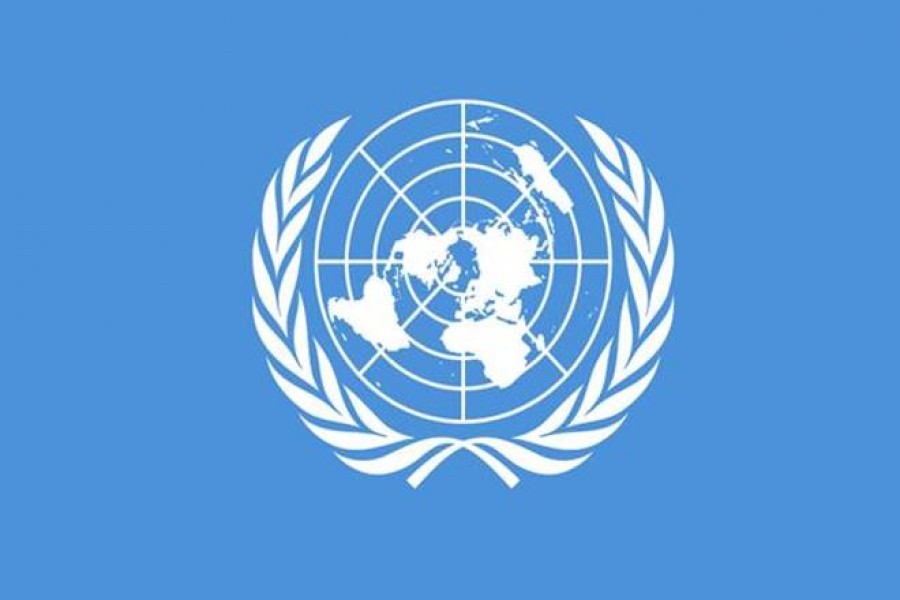While launching the Asia-Pacific Conference on financing inclusive and sustainable development in Dhaka last week, President Abdul Hamid said the main challenge for Bangladesh as well as other developing countries is to fill the financing gap before achieving the Sustainable Development Goals (SDGs).
The President said it is not possible for a single country to mobilise required financing without mutual cooperation among nations. Domestic resource mobilisation coupled with enhanced participation of the private sector and effective international development assistance can help ensure the required financing, he added.
The International Chamber of Commerce, Bangladesh (ICCB) organised the three-day conference at a city hotel in collaboration with the government of Bangladesh, United Nations Economic and Social Commission for Asia and the Pacific (UNESCAP), Asian Development Bank-Trade Finance Programme (ADB-TFP) and the London Institute of Banking and Finance.
The speakers at the conference stressed the need for proper utilisation of resources to meet the development Agenda 2030, also emphasising the need for concerted efforts of the world community to meet the SDGs.
For implementing SDGs, there is a need for mobilising the domestic resources through imposing wealth tax, combating tax evasion and strong partnership between the government and the private sector is required to arrange funds.
Innovative ways need to be explored to mobilise financial resources to implement the SDGs. In this connection, experts stress on addressing three issues including mobilising additional domestic resources, infrastructure financing and enhancing financial inclusion using technology.
In fact, mobilisation of sufficient funds to achieve SDGs is a major challenge, especially for the least developed countries (LDCs). According to the UNESCAP estimate, financing SDGs requires an additional investment worth US$1.5 trillion per year in the Asia and Pacific region, which is 5.0 per cent of the GDP of Asia Pacific countries.
Almost one-fourth of the time for implementing the 2030 development agenda has already elapsed. The LDCs would have to spend 16 per cent of GDP to finance the SDGs. This clearly suggests, in addition to national efforts, the need to strengthen cooperation for facilitating the achievement of SDGs through adequate resource mobilisation for all countries in the region.
SDG financing needs strong collaboration and cooperation between public and private sectors, facilitated by multilateral development banks. For Bangladesh, the country achieved the targets of Millennium Development Goals (MDGs) set by the United Nations. It has also achieved the distinction of transforming itself into a developing country from the status of a least developed country (LDC). At present, the main objective of the country is to achieve the targets of SDGs by 2030.
The SDGs, which were build on the UN's previous MDGs, seek to address issues of economic growth, education, health, social protection and climate change. The SDGs were adopted by the world leaders in 2016 and came into effect in January 2016.
Bangladesh's performance in the initial years was not that much encouraging. It scored a rank of 120 out of 157 countries in the SDG Index and Dashboards Report 2017 by the UN Sustainable Development Solutions Network. Its overall performance on the index was 56.2, lower than the regional average score of 63.3. Bhutan, India, Nepal and Sri Lanka all scored higher than Bangladesh on the index, while Pakistan and Afghanistan scored lower. Bangladesh has a 'red' threshold on 10 of the 17 SDGs, indicating that it needs to overcome major challenges in order to meet the goals.
As such, the country needs wide focus on eradicating poverty and hunger, reducing inequality and taking climate action properly in achieving SDGs. Among the 17 goals of the global agenda, the four goals - no poverty, zero hunger, reduced inequalities and climate action - are very important for Bangladesh to implement the SDGs by 2030.
It appears that Bangladesh needs to address the four areas properly to get successes in implementation of the SDGs like it did in the MDGs. However, it is very difficult for the country to reduce inequality, take climate action and ensure good governance. Obviously, these are the most challenging areas for Bangladesh to implement the SDGs.
Though the country has been posting modest economic growth consistently, income inequalities at individual level are making room for consumption inequalities. As such, the country needs to address all sorts of inequalities among the people, including inequality between men and women.
If the inequalities are reduced, another goal- gender equality (Goal-5) of the agenda-will be largely achieved as one is related to the other. Alongside poverty eradication, Bangladesh needs to address hunger, particularly the problem of malnutrition as many children of even well-off families suffer from malnutrition.
There are, however, other challenges, too, on way to achieving the SDGs. The need for efficiency in public sector spending is a must to overcome many hurdles. Delays in project implementation have damaging impact on cost as well as on the intended benefits.
Achieving the targets of SDGs demands concerted and collective efforts with strong political commitment at all levels. The 2030 Agenda comes at a time when Bangladesh has already kicked off its journey towards an upper middle income country by 2030 and a developed country by 2041.
The country incorporated priorities of SDGs in all development policies. It adopted an inclusive approach to development so that the poorest and the most vulnerable section of the country can be integrated into its national development efforts.
As the country moves ahead, challenges in several areas, including in resource mobilisation and data management, need to be addressed. Nevertheless, let's hope that all these works are done on a priority basis to reach the SDGs targets on time.


